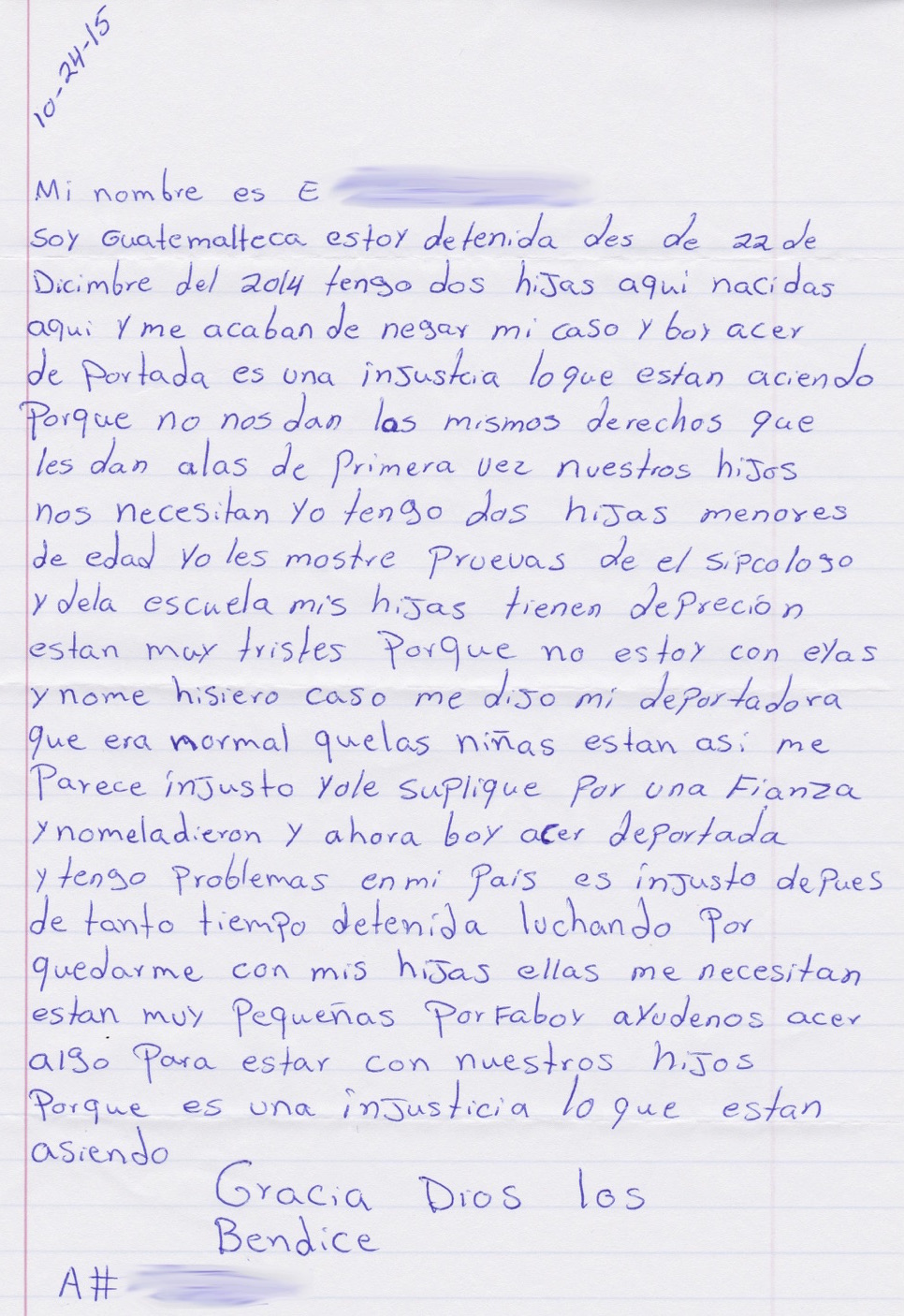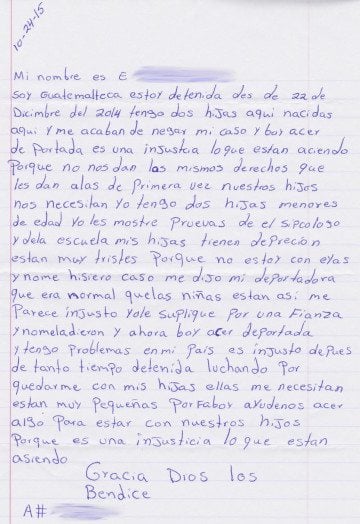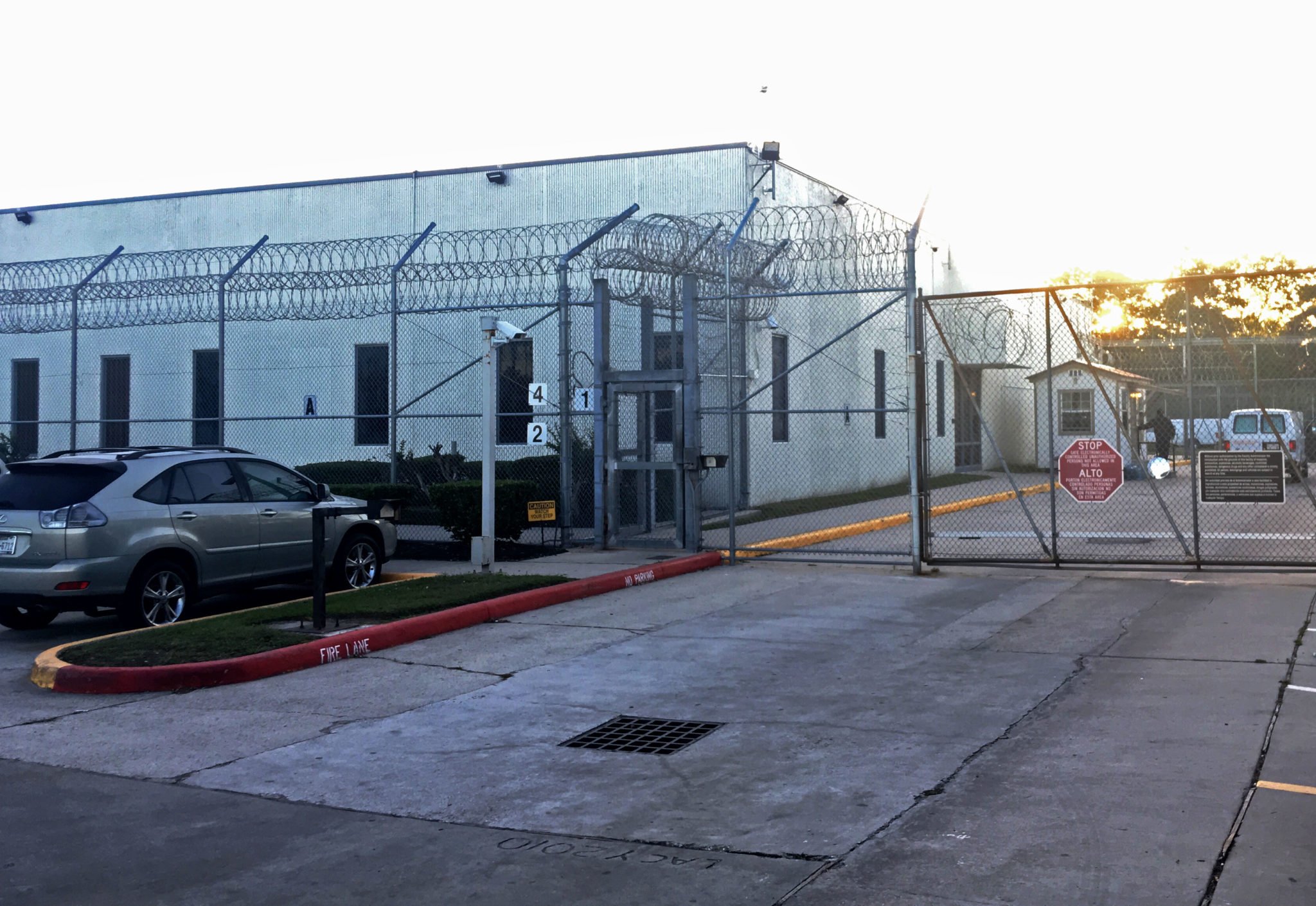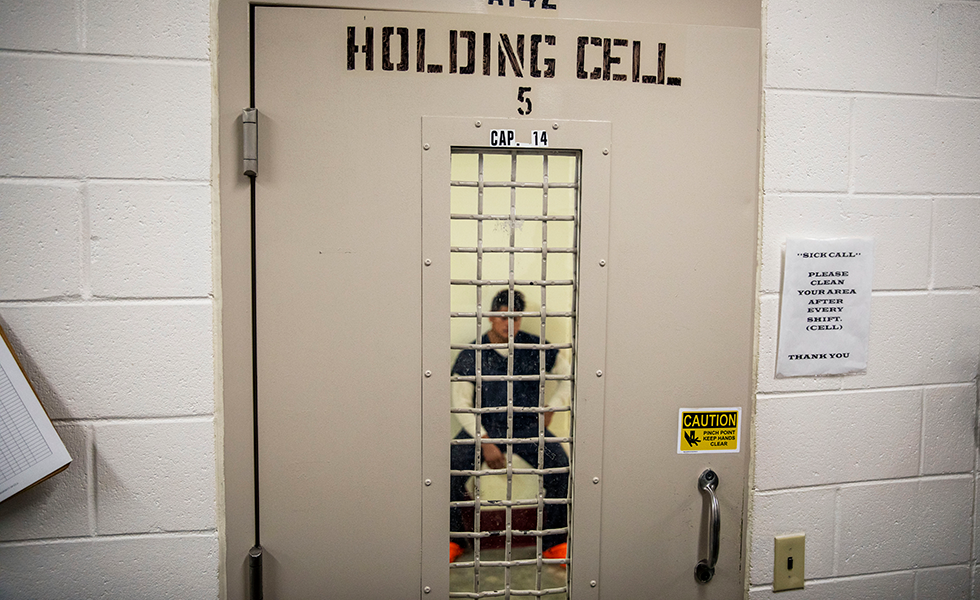
Hutto Hunger Strike Reportedly Growing Despite ICE Denials
One striker's daughter says staff retaliated against her mom by transferring her to solitary confinement in an all-male facility.


She had had enough.
Two weeks ago, nearly seven months into her stay at the T. Don Hutto Residential Center in Taylor, northeast of Austin, Francisca Morales Macias went on a hunger strike. Morales Macias, fleeing an abusive partner in Mexico, was detained at the all-female immigration detention center in April and decided to protest after she was repeatedly served rotten milk and undercooked, and even uncooked, food.
Monica Morales, her 27-year-old daughter, told the Observer that her mother was also experiencing mistreatment by guards inside the center.
“All she did was try to save her life and try to come back to her family” in Texas, said Morales, who lives in Amarillo. Women detained at Hutto, she said, “aren’t animals, they’re human beings.”
By last Wednesday — nine days ago — 26 more women had reportedly joined Morales Macias, refusing dinner and vowing indefinitely not to eat until they are released from the detention facility. Many women, including Morales Macias, have fled violence and persecution in their home countries, including Mexico, Honduras and Guatemala, and are seeking asylum in the United States.
But Immigration and Customs Enforcement (ICE) spokesperson Nina Pruneda denied reports that the hunger strike is taking place at all.
“There is no hunger strike, there has never been a hunger strike,” she said. “It’s been very misleading. Everything has been based on rumor and not fact.” She also said in an e-mail to the Observer that ICE has “explained the negative health effects of not eating” to the women held there.
Word of the hunger strike spread after Grassroots Leadership, an Austin nonprofit, obtained 19 handwritten letters written by women detailing their experiences in Hutto and intent to strike.
One letter reads: “I am a woman fleeing a country where women are given few rights, all of which are violated, and land in this place where the people of immigration condemn us to a process with little or no security, since this process will ultimately end with our deportation.”
Cristina Parker, Grassroots Leadership’s immigration programs coordinator, said women have vowed to strike indefinitely, and some have taken to drinking sugar water to sustain themselves.
Women have also reported troubling conditions that mirror those of other detention facilities: poor food, hostile and belittling treatment by staff, and scant medical and mental health care. Grassroots Leadership has maintained a presence at Hutto since it opened in 2006, pushing for its closure and visiting women detained in the facility every week to monitor conditions.
“I just hope and pray that God hears our prayers and gets her back with us because we’ve been separated for almost six years already.”
Advocates say they’ve also received several accounts from detained women that indicate facility staff are retaliating against the hunger strikers. Two women, Parker said, including Morales Macias, have been transferred to other detention centers. Morales said her mother told her when they spoke Tuesday that she has been placed in solitary confinement at an all-male facility. But Morales doesn’t know which one, and said her mother believes ICE is retaliating against her for starting the hunger strike.
Hutto served as the country’s only family detention from 2006 to 2009 and has been the subject of numerous allegations of human rights abuses, including two federal sexual assault investigations and a lawsuit by the ACLU of Texas and University of Texas Law School.
Insis Maribel Zelaya Bernardez, a Honduran woman, alerted Grassroots Leadership on Sunday night that she too had been placed in solitary confinement within the facility. According to her handwritten account, she had been separated from her peers and placed in a cold room: “They followed me as if I had committed a crime. I feel like they are treating me like a criminal. It’s an injustice.”
Virginia Raymond, an Austin human rights attorney representing Zelaya Bernandez and who has visited her once, said one Hutto deportation officer told her that Zelaya Bernardez was separated from her peers for disciplinary reasons, while another told Raymond that Zelaya Bernandez was placed in the medical observation cell for health reasons. Raymond suspects her segregation is related to the hunger strike and plans to ask for her medical records to confirm what the officer told her.
Zelaya Bernandez was released from confinement on Monday, according to Raymond.
ICE spokesperson Pruneda told the Observer that ICE “routinely” moves detainees if bed space availability is limited, or “to provide greater access to specialized services needed by particular detainees.”
Hutto is the country’s sole women-only immigrant detention facility, and is privately owned by Corrections Corporation of America, which also owns the 2,400-bed South Texas Family Residential Center, which houses migrant women and children in Dilley, south of San Antonio. The company contracts with ICE.
Hutto served as the country’s only family detention from 2006 to 2009 and has been the subject of numerous allegations of human rights abuses, including two federal sexual assault investigations and a lawsuit by the ACLU of Texas and University of Texas Law School. In 2009, the Obama administration ended its policy of detaining migrant families and children, only to restart the policy last year when thousands of unaccompanied minors and families fleeing poverty and gang violence in their countries of origin sought refuge in Texas. Currently, the Karnes County Residential Center and South Texas Family Residential Center, in Dilley, detain women and children. Hutto does not currently house detained children.
A recent United Nations High Commissioner for Refugees survey details the stories of 160 Central American and Mexican women who have fled escalating gang violence in their home countries, which the group predicts could increase and lead to a refugee crisis similar to what Texas saw in the summer of 2014.
“The unrest in Central America is real right now, and has also been going on for a long time,” Parker said. “These women in Hutto are really no different [than the women in the Karnes or Dilley facilities], except they didn’t come with their children. Some have left their children behind to provide for them from here.”
To support journalism like this, donate to the Texas Observer.

